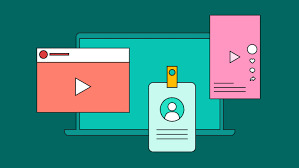
HR departments, hiring managers, and even CEOs are increasingly relying on personality assessments to make crucial decisions about hiring, team building, and promotions. But as these tests gain popularity, experts warn of potential pitfalls and ethical concerns.
With all the enthusiasm, what can personality tests actually reveal about an employee's potential – and what can't they answer? And corporate culture aside, do average workers really need to be categorized by their personality type?
What are personality tests?
They're standardized questionnaires designed to assess various aspects of an individual's personality, typically taking 15-30 minutes to complete. Two of the most common in workplace settings are the Myers-Briggs Type Indicator (MBTI) and the Big Five personality test.
Answering questions about how you'd react in hypothetical situations or rating how strongly you agree with certain statements can supposedly reveal traits like extraversion, conscientiousness, or openness to experience. Some tests claim to predict job performance or team compatibility based on these personality profiles.
Another popular assessment gaining traction in corporate settings is the Enneagram test. This system categorizes individuals into one of nine personality types, each with distinct motivations, fears, and behaviors. "The Enneagram has seen a surge in workplace adoption," explains Nick Smith, a leading psychometrics technology expert. "While it can offer valuable insights into interpersonal dynamics, there's a risk of oversimplification. Reducing complex individuals to a single number can lead to stereotyping and misunderstanding if not used thoughtfully."
How reliable are personality assessments?
They don't diagnose mental health issues or definitively predict job success. A personality profile is just one piece of information that indicates potential strengths or weaknesses, said Smith.
"These tests weren't designed to be used as hiring tools," Smith cautioned. "They're meant to foster self-awareness and improve communication, not to make high-stakes decisions about someone's career."
When and how often should personality tests be done?
"A personality test is a snapshot of how someone sees themselves at that moment," Smith stressed. "It doesn't tell you how a person will actually perform in a specific job role."
Simply being a job candidate shouldn't be reason enough for a company to require a personality assessment. But some organizations administer them annually as part of employee development programs.
Smith wouldn't discuss specific companies' practices — but said that generally, it's problematic to use personality tests as the sole basis for important workplace decisions. It's much like how doctors don't assume your health is fine based on a single blood pressure reading; they consider multiple factors.
How is a personality test different from a skills assessment?
Personality tests focus on traits and tendencies, while skills assessments measure specific abilities or knowledge relevant to a job.
Skills assessments often involve practical tasks or simulations of job duties. A coding test for a software developer or a writing sample for a journalist are examples of skills-based evaluations.
If either kind of assessment raises concerns, the next step should be a more comprehensive evaluation of the candidate or employee — including interviews, work samples, and reference checks.
How can you tell if personality assessments are being misused in the workplace?
"Personality isn't destiny," Smith said. "People can and do behave differently in various contexts. A test can't predict with certainty how someone will perform in a specific work environment."
Examples of potential misuse might include rejecting candidates solely based on personality test results, pigeonholing employees into rigid roles based on their "type," or using test results to justify discriminatory practices.
Smith noted that sometimes, well-intentioned efforts to improve workplace dynamics through personality testing can backfire. For instance, labeling team members as certain "types" might reinforce stereotypes or limit opportunities for growth and collaboration.
"Anyone who's concerned about how personality tests are being used in their workplace should speak to their HR representative or seek legal advice if they believe discriminatory practices are occurring," he said.
Website of Source: https://www.enneagramzoom.com/
Source: Story.KISSPR.com
Release ID: 1104141
